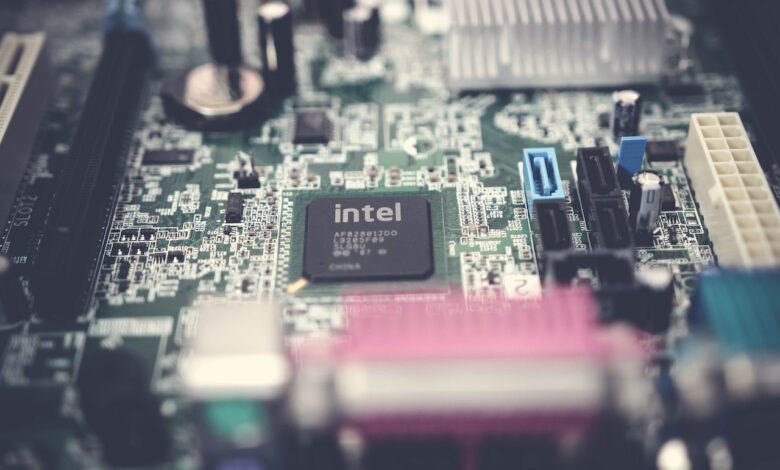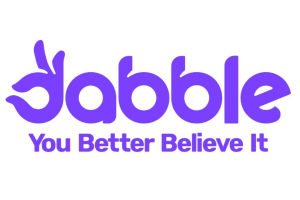
On September 20, 2023, Intel’s CTO, Greg Lavender, underscored the vital role developers hold in utilizing artificial intelligence (AI) for catering to various industry demands at present and in the future. In his keynote address at the AI Developers Conference, Lavender emphasized how harnessing AI technologies’ full potential depends on developers’ creativity, innovation, and dedication across the globe. He also outlined Intel’s commitment to providing advanced tools, resources, and support to the developer community to accelerate the integration of AI solutions in diverse sectors.
Creating an Open Ecosystem for AI
In his latest address, Lavender detailed Intel’s strategy of creating an open ecosystem to make AI available for all developers and tackle the issues they encounter while implementing AI systems. He stressed the significance of “openness, choice, trust, and security as core values of the company’s principles.”
Collaboration and Innovation Within the Community
Lavender emphasized the importance of collaboration and innovation within the community, as Intel aims to foster continuous growth and advancement in the field of AI. By putting these core values into practice, Intel looks forward to empowering developers and organizations with the necessary tools, resources, and support to seamlessly integrate AI solutions across a wide variety of applications and industries.
The Liberty to Choose Hardware and Software
Lavender said developers must be free to pick the hardware and software that best fits their needs. To maximize efficiency and achieve optimal results, developers must be flexible in selecting tools tailored to their specific projects. By providing this level of autonomy, developers are better equipped to overcome challenges and create innovative solutions.
Streamlining AI Development
Tools that streamline and secure AI programs and decrease the necessary investment for maintaining and scaling them, Intel seeks to enable developers to introduce AI capabilities to a wide range of applications and sectors.
Industries Benefiting from AI-driven Solutions
As a result, healthcare, finance, and agriculture industries can significantly benefit from AI-driven solutions, leading to increased efficiency and innovation. By empowering developers and reducing barriers to entry, Intel’s initiatives will foster the growth of AI technologies, ultimately contributing to the advancement of various sectors across the global economy.
Intel’s Advanced GPUs and Aurora Supercomputer
With its Max Series GPUs, Intel is contributing to advancements in graphics technology, which will be employed in the world’s largest GPU cluster, Argonne National Laboratory’s Aurora supercomputer. These GPUs will provide unparalleled processing power and speed, enabling researchers to tackle complex simulations and conduct high-resolution data analysis. As a result, the Aurora supercomputer will play a critical role in scientific advancements across various fields, from climate change studies to drug discovery and even exploring the cosmos.
Intel’s Commitment to End-to-End Security
The company is also heavily invested in end-to-end security, with projects like the Transparent Supply Chain that validates hardware and firmware integrity and confidential computing that safeguards sensitive data in memory. The company has adopted advanced technologies such as blockchain, artificial intelligence, and multi-factor authentication to enhance its security measures further. These efforts focus on creating a robust security infrastructure that minimizes vulnerabilities, prevents unauthorized access, and ensures data protection throughout various stages of processing and storage.
New Attestation Service and Trust Authority Suite
Intel recently unveiled what it calls, “a new attestation service” within its Trust Authority suite, improving security in cloud and multi-cloud situations and in hybrid or edge settings. The new service aims to bridge the gap between varied IT environments by allowing real-time verification of the integrity and compliance of workloads. This enhancement mitigates the risks associated with potential cyberattacks and ensures a consistent approach to security across a diverse range of platforms.
Addressing AI Adoption Challenges
Lavender mentioned that to overcome challenges related to AI adoption, such as a lack of expertise, resource limitations, and high-cost proprietary platforms, Intel is committed to nurturing an open ecosystem that facilitates easy deployment across various architectures. Furthermore, Intel seeks to foster collaboration and knowledge-sharing among industry players, researchers, and developers to accelerate AI innovation and enhance its accessibility. By offering robust support and creating synergies in the ecosystem, Intel aims to simplify AI implementation and reduce costs for businesses, enabling them to reap the benefits of this transformative technology more efficiently.
Intel and the Linux Foundation’s Unified Acceleration Foundation
Intel aims to simplify app development for cross-platform delivery and will contribute its oneAPI programming model. With the oneAPI programming model integrated into the UXL Foundation, developers will have access to a standardized set of tools and libraries, making it easier to build applications that run efficiently across diverse hardware platforms. This collaborative effort reduces development complexities and fosters innovation in the industry, bringing both hardware and software developers closer to achieving seamless cross-platform compatibility.
Collaboration with Top Software Vendors
Additionally, Intel is working with top software vendors like Red Hat, Canonical, and SUSE. It seeks to provide Intel-optimized versions of enterprise software releases — ensuring optimal performance for the most recent Intel hardware platforms and technologies. These collaborations are crucial in delivering a seamless experience to clients, as they can take full advantage of the features and capabilities of Intel’s latest hardware. By providing Intel-optimized software releases, businesses can unlock the power and potential of their Intel-based systems, leading to improved overall performance and efficient IT infrastructure management.
FAQ
What did Greg Lavender, Intel’s CTO, emphasize in his keynote address at the AI Developers Conference?
Greg Lavender emphasized the vital role of developers in harnessing the full potential of AI technologies and Intel’s commitment to providing advanced tools, resources, and support to the developer community for accelerating the integration of AI solutions in diverse sectors.
What is Intel’s strategy for creating an open ecosystem for AI?
Intel’s strategy focuses on openness, choice, trust, and security as core values, aiming to make AI accessible to all developers and tackle the issues they encounter while implementing AI systems.
How does Intel aim to foster collaboration and innovation within the community?
Intel puts its core values into practice, empowering developers and organizations with the necessary tools, resources, and support to seamlessly integrate AI solutions across various applications and industries, fostering continuous growth and advancement in AI.
What is Intel’s stance on the liberty to choose hardware and software for developers?
Intel believes that developers must be free to pick the hardware and software that best fit their distinct needs, providing autonomy that helps overcome challenges and create innovative solutions.
How does Intel plan to streamline AI development?
Intel plans to provide tools that streamline the development of secure AI programs, decrease the necessary investment for maintaining and scaling them, and enable developers to introduce AI capabilities to various applications and sectors.
What are some industries that can benefit from AI-driven solutions?
Industries such as healthcare, finance, and agriculture can significantly benefit from AI-driven solutions, leading to increased efficiency and innovation.
How is Intel contributing to advancements in graphics technology?
Intel’s Max Series GPUs are contributing to advancements in graphics technology, which will be employed in the world’s largest GPU cluster, Argonne National Laboratory’s Aurora supercomputer.
What are Intel’s initiatives regarding end-to-end security?
Intel invests in end-to-end security with projects like the Transparent Supply Chain, confidential computing, and by adopting advanced technologies such as blockchain, AI, and multi-factor authentication to create a robust security infrastructure throughout various stages of processing and storage.
What is the new attestation service within Intel’s Trust Authority suite?
Intel recently unveiled a new attestation service that improves security in multi-cloud, hybrid, on-premises, and edge settings by allowing real-time verification of the integrity and compliance of workloads, bridging the gap between varied IT environments.
How does Intel plan to address challenges related to AI adoption?
Intel plans to overcome AI adoption challenges by nurturing an open ecosystem that facilitates easy deployment across various architectures, fostering collaboration and knowledge-sharing among industry players, researchers, and developers, and offering robust support to simplify AI implementation and reduce costs for businesses.
How is Intel involved with the Linux Foundation’s Unified Acceleration Foundation (UXL)?
As a founding member of the UXL, Intel aims to simplify application development for cross-platform deployment, contributing its oneAPI programming model to the UXL Foundation and providing developers access to a standardized set of tools and libraries for building efficient cross-platform applications.
What collaborations does Intel have with top software vendors?
Intel is working with top software vendors like Red Hat, Canonical, and SUSE to provide Intel-optimized versions of their enterprise software releases, ensuring optimal performance for the most recent Intel hardware platforms and technologies and delivering a seamless experience to clients.
Featured Image Credit: Pok Rie; Pexels, Thank you!
Source link




